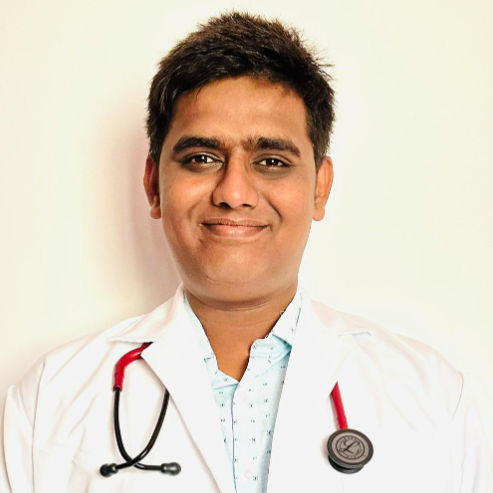Nystagmus: Causes, Symptoms, and Treatment Options
Nystagmus causes uncontrollable eye movements that affect vision and balance. Discover its symptoms, causes, and treatment options to manage it effectively.


Nystagmus is a condition that affects eye movement, causing involuntary, repetitive, and uncontrolled motions of the eyes. These movements can be side-to-side, up and down, or even in a circular pattern. While it can be unsettling, understanding the condition can help manage it better.
In this article, we’ll explore what nystagmus is, its causes, symptoms, and available treatment options. We’ll also share some practical tips to improve daily life for those living with this condition.
What Is Nystagmus?
Nystagmus is an eye disorder where the eyes move uncontrollably, making it difficult to focus. These movements can be fast or slow and may happen in one or both eyes. Some people are born with it (congenital nystagmus), while others develop it later in life (acquired nystagmus).
Common Symptoms of Nystagmus
The most noticeable sign of nystagmus is the involuntary movement of the eyes. Other symptoms may include:
- Blurry or shaky vision – Difficulty seeing clearly due to constant eye movement.
- Sensitivity to light – Bright lights may worsen vision problems.
- Dizziness or balance issues – Some people may feel unsteady.
- Head tilting – People with nystagmus often tilt their heads to reduce eye movement and see better.
- Difficulty seeing in the dark – Poor night vision is common.
What Causes Nystagmus?
Nystagmus can be caused by various factors, including:
1. Congenital Nystagmus (Present at Birth)
- Often occurs due to abnormal development of the eye-brain connection.
- May be linked to genetic conditions like albinism or congenital cataracts.
2. Acquired Nystagmus (Develops Later in Life)
- Neurological conditions – Multiple sclerosis, stroke, or brain injury.
- Inner ear problems – Conditions like Meniere’s disease can affect balance and eye movement.
- Medications or substance use – Certain drugs (like anti-seizure medications) or alcohol can trigger nystagmus.
- Vitamin deficiencies – Lack of vitamin B12 or thiamine may contribute.
How Does Nystagmus Affect Daily Life?
People with nystagmus may face challenges such as:
- Difficulty reading or driving – Uncontrolled eye movements can make these activities harder.
- Social discomfort – Some may feel self-conscious about their eye movements.
- Fatigue – Straining to focus can lead to eye tiredness.
However, many individuals adapt well with the right support and strategies.
Consult Top Specialists
Treatment Options for Nystagmus
While there’s no complete cure for nystagmus, treatments can help manage symptoms and improve vision.
1. Corrective Lenses or Prism Glasses
- Glasses or contact lenses can improve vision clarity.
- Special prism glasses may help reduce head tilting.
2. Medications
- In some cases, drugs like gabapentin or baclofen can help reduce eye movements.
3. Vision Therapy
- Eye exercises may improve focus and coordination.
4. Surgery (In Rare Cases)
- Eye muscle surgery can be considered to reposition the eyes and reduce abnormal movements.
5. Lifestyle Adjustments
- Using large-print books or digital magnifiers for reading.
- Adjusting lighting to reduce glare.
- Taking frequent breaks when doing close-up work.
When to See a Doctor
If you or someone you know experiences:
- Sudden onset of nystagmus
- Worsening vision problems
- Dizziness or balance issues
It’s important to consult an eye specialist (ophthalmologist) or neurologist for proper diagnosis and treatment.
Final Thoughts
Living with nystagmus can be challenging, but with the right care and support, many people lead fulfilling lives. If you suspect you have nystagmus or need expert advice, consider booking a consultation with an eye specialist through Apollo 24|7. Early diagnosis and management can make a big difference in maintaining good vision and comfort.
Consult Top Specialists
Consult Top Specialists

Dr. Anand Ravi
General Physician
2 Years • MBBS
Bengaluru
PRESTIGE SHANTHINIKETAN - SOCIETY CLINIC, Bengaluru

Dr. Janjirala Seshivardhan
Cardiologist
7 Years • MBBS,DNB(GM),DM(Cardiology)
Manikonda Jagir
Apollo Clinic, Manikonda, Manikonda Jagir

Dr Nazneen Khan
Cardiologist
7 Years • M.B.B.S, M.D (MEDICINE), DrNB CARDIOLOGY
Pune
Apollo Clinic, Viman Nagar, Pune

Dr. Ramalinga Reddy
General Physician
5 Years • MBBS MD General medicine
Bengaluru
PRESTIGE SHANTHINIKETAN - SOCIETY CLINIC, Bengaluru

Dr. Sushith C
General Physician
2 Years • MBBS
Bengaluru
PRESTIGE SHANTHINIKETAN - SOCIETY CLINIC, Bengaluru
Consult Top Specialists

Dr. Anand Ravi
General Physician
2 Years • MBBS
Bengaluru
PRESTIGE SHANTHINIKETAN - SOCIETY CLINIC, Bengaluru

Dr. Janjirala Seshivardhan
Cardiologist
7 Years • MBBS,DNB(GM),DM(Cardiology)
Manikonda Jagir
Apollo Clinic, Manikonda, Manikonda Jagir

Dr Nazneen Khan
Cardiologist
7 Years • M.B.B.S, M.D (MEDICINE), DrNB CARDIOLOGY
Pune
Apollo Clinic, Viman Nagar, Pune

Dr. Ramalinga Reddy
General Physician
5 Years • MBBS MD General medicine
Bengaluru
PRESTIGE SHANTHINIKETAN - SOCIETY CLINIC, Bengaluru

Dr. Sushith C
General Physician
2 Years • MBBS
Bengaluru
PRESTIGE SHANTHINIKETAN - SOCIETY CLINIC, Bengaluru




